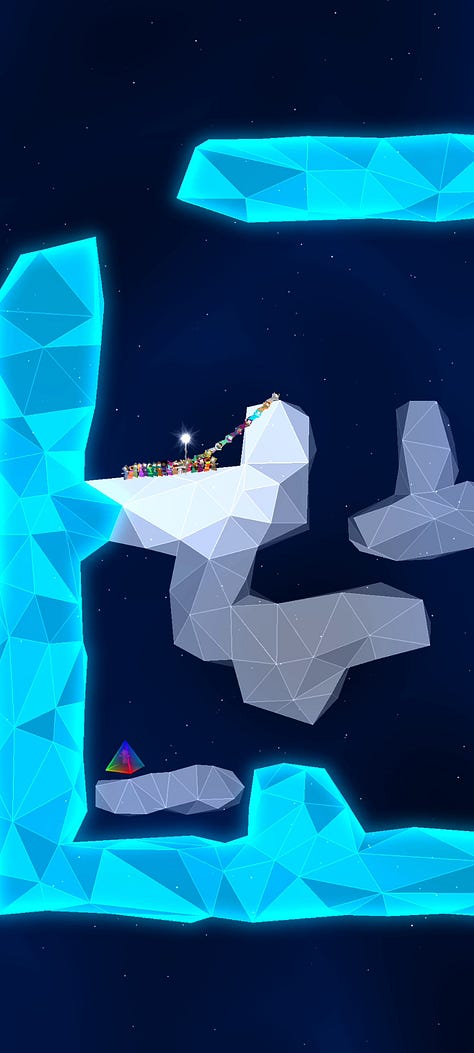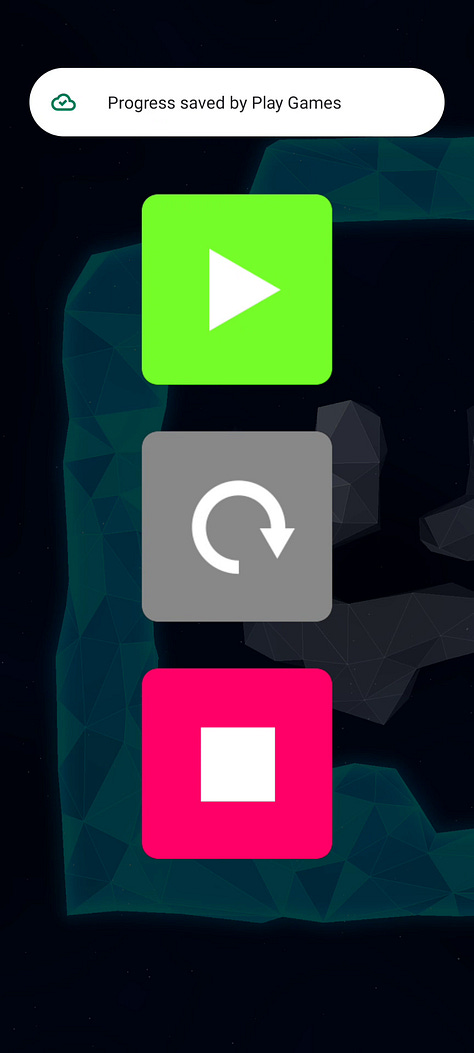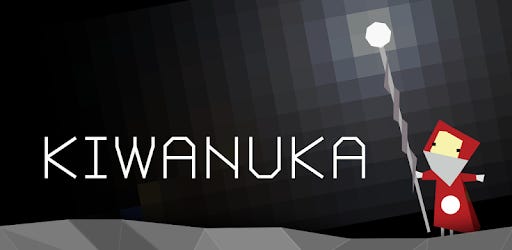Kiwanuka Review
Lemmings except your followers are a resource, not a treasure. Simple, cute and rather easy. Nothing less, and nothing more.
There are many games with the player being a “sheep shepherd”, especially on mobile devices. Since the 1991 release of Lemmings and its numerous sequels, hundreds of games have emerged—either as clones or "inspired" by its gameplay while adding their own twists. Today’s reviewed game, Kiwanuka, falls into the latter category. The idea of carefully ensuring small creatures reach the end of the map has been abandoned in favour of using them as a resource—building materials to help the Shepherd cross obstacles. A pretty nice concept, and just as cool in execution, but it’s not enough.
0. TL;DR
Developer: Jakyl
Release date: 6 Jun 2014
Genre: Platformer, Offline, Singleplayer
Price: £3.59 (free with Play Pass)
File size: ~30 MB
Reviewed on: Motorola Moto G82
Pros: Great looks; entertaining levels; achievements enabled; enjoyable music…
Cons: …but not very fitting; single gimmick isn’t a lot for a whole game; no settings
Download: Google Play
Gameplay: 4/5
Audio & Visuals: 4/5
Accessibility: 1/5
Monetization: N/A
FUN FACTOR: 4/51. Gameplay
Kiwanuka is a Ugandan god of storms and thunder. I don't think any of the developers are from Uganda or wanted to represent their culture in a mobile game, but the title definitely fits the gameplay - as the Shepherd, the player must navigate through an ice labyrinth to reach another Shepherd trapped in a magical cone. For assistance, they have a horde of faithful followers who go wherever lightning strikes from their magical staff.



By swiping upward, the lightning creates a vertical line, and then the followers begin climbing on each other's shoulders to form a tower. This tower can then be tilted left or right to create a bridge. There's no need to worry about the fate of the followers - they don't seem to be real people in Kiwanuka; if such a bridge is destroyed or if the little people go where they shouldn't, they simply disappear, after which lightning from the Shepherd's staff will rematerialize them.
The above is essentially the only gameplay mechanic in Kiwanuka, which is only enriched by obstacles on the map. The ice labyrinths may sometimes be covered with purple or blue goo that causes the followers or the Shepherd himself to dematerialize. Occasionally there are moving elements, requiring careful planning of where, how large, and in what manner to build the human tower-bridge to progress further. Beyond this, nothing else really happens here, so for some people this might be a dealbreaker.
2. Visuals, Audio & Performance
The visuals are quite beautiful in their minimalism. Against a dark background, we see two-dimensional labyrinths made of white-blue ice, traversed by tiny 2D characters - each looking slightly different. The Shepherd stands out due to their height and magical staff. Everything maintains a very cohesive and legible aesthetic.



The audio design is equally competent - the sounds of lightning striking from the staff feel punchy and distinct. The soundtrack is cool too, though somewhat mismatched with the actual game; it incorporates some North African elements that feel oddly out of place given the icy setting, creating a bit of cognitive dissonance.
Performance is decent overall - the game mostly ran at 120 FPS on my device, though some noticeable stuttering occurred on larger maps whenever the lightning effects activated.
3. Accessibility
This is where Kiwanuka really falls short. This isn't a criticism of the core gameplay itself - the game only uses portrait view and requires just one hand to play - but there's a complete lack of any settings whatsoever. You can't adjust audio or graphics options, change the language, or modify anything at all. The game simply works exactly as it was originally programmed, with zero customization possible.



4. Ads & Microtransactions
Kiwanuka is a paid game (or free for Play Pass subscribers). No ads, no microtransactions. I haven't seen any advertisements promoting this game either, but considering it was released nearly 10 years ago, that doesn't surprise me.
5. Verdict
It’s a good game. Everything Kiwanuka offers works properly, but nothing beyond that. The mechanic of building living bridges is rather unique and sometimes requires some thought to solve certain levels, but it never tries to do more. I'm not sure if this is enough to justify paying nearly 4 pounds for this game. But if you’re a Play Pass user, you should definitely give it a go.




